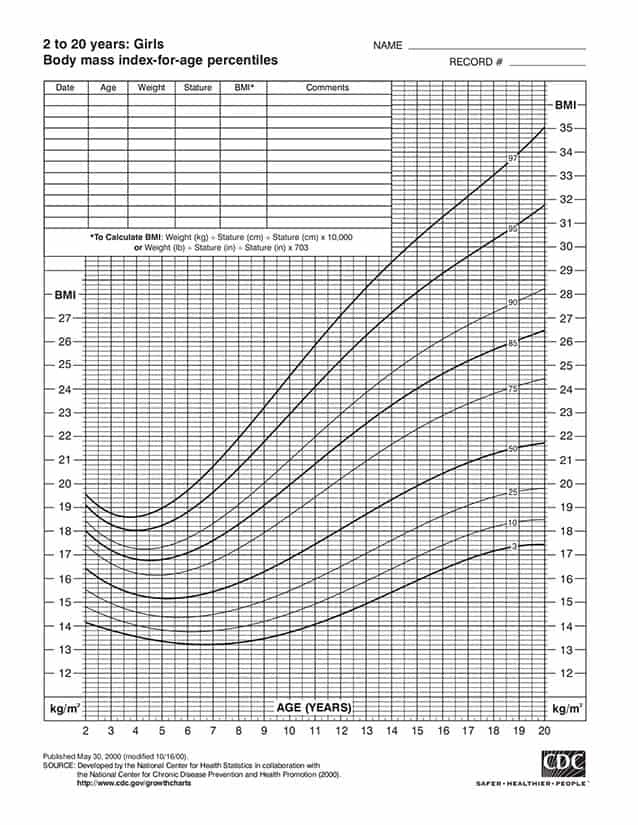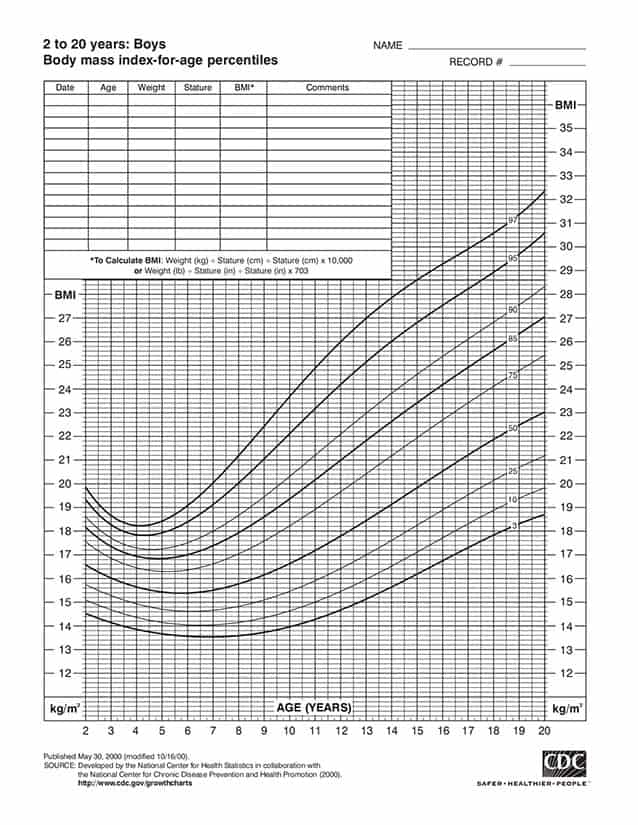What Is The Average Weight For 13 Year Olds? (Boys & Girls)

Explore this guide for a detailed analysis of average weight for 13 year olds, various weight percentiles for boys and girls, BMI information, and more.
If your child is 13 years old, they would be entering the most exciting, confusing, and volatile phase of their lives, filled with physical and psychological transformations. As a parent, you should be aware of the average range of height and weight changes that might occur during these years.
The average weight for girls falls between 76 and 148 pounds, while for boys, it falls between 75 and 145 pounds. But that doesn’t mean that teens who don’t fall into these weight ranges are underweight or overweight. Just make sure that your teenager eats a healthy and nutritious diet, performs teenage-friendly exercises regularly, and lives an active healthy lifestyle. This will ensure that they grow to their optimum height and have a healthy weight.
Read on for a detailed analysis of the average weight for 13 year olds, weight percentiles for boys and girls, body mass index (BMI) information, and more. Since there is a unique timeline that follows for each child, there is a wide range of standard weights for both boys and girls.
Average weight for 13-year-olds: Boys
According to the Centers for Disease Control and Prevention (CDC) [1]Centers for Disease Control and Prevention: CDC Growth Charts for Boys: United States, the average weight for a 13-year-old boy is between 75 and 145 pounds. One of the most common growth charts to measure a child’s growth in terms of size and weight is the Body Mass Index-For-Age Percentile Chart.
The video below explains how to read the CDC’s growth chart yourself to find out the weight category of your teen:
The table given below shows the weight percentiles for 13-year-old boys. If your child belongs to the 25th percentile, that means 75 out of 100 teen boys weigh more and 25 boys weigh less.
| Weight percentiles for 13-year-old boys | |
| 5th percentile | 75 lbs |
| 10th percentile | 80 lbs |
| 25th percentile | 89 lbs |
| 50th percentile | 101 lbs |
| 75th percentile | 116 lbs |
| 90th percentile | 132 lbs |
| 95th percentile | 145 lbs |
Average weight for 13 year olds: Girls
According to the Centers for Disease Control and Prevention (CDC) [2]Centers for Disease Control and Prevention: CDC Growth Charts for Girls: United States, the average weight for a 13 year old girl is between 76 and 148 pounds. You can use the Body Mass Index-For-Age Percentile Chart to measure the size of your teen girl.
The table given below shows the weight percentiles for 13 year old girls. If your child belongs to the 50th percentile, that means 50 out of 100 teenage girls weigh more and 50 weigh less.
| Weight percentiles for 13-year-old girls | |
| 5th percentile | 76 lbs |
| 10th percentile | 81 lbs |
| 25th percentile | 89 lbs |
| 50th percentile | 101 lbs |
| 75th percentile | 117 lbs |
| 90th percentile | 135 lbs |
| 95th percentile | 149 lbs |
Related Articles
How much should a 13 year old weigh?
There is no one-size-fits-all answer to how much a 13-year-old should weigh as it can vary depending on a variety of factors such as height, body composition, and genetics. However, a general range of normal weight for 13-year-olds can be determined using their body mass index (BMI).
BMI Percentiles
To determine whether your child’ is overweight’s weight is ideal, calculate his or her BMI, using height and weight to calculate body fat. Use a body mass index percentile chart to show where a child lands among a spectrum of kids his or her age. For example, if a child’s BMI is in the 75th percentile, 75% of the kids of the same gender and age who are measured have a lower BMI.
The categories that describe a child’s weight are:
- Underweight: BMI < the 5th percentile.
- Healthy weight: BMI ≥ the 5th percentile and < the 85th percentile.
- Overweight: BMI is ≥ the 85th percentile and < than the 95th percentile.
- Obese: BMI is ≥ the 95th percentile.
When BMI calculations are based on sex and age, they are referred to as “BMI-for-age.” You can refer to the weight chart for teenage given below to understand your teen’s weight status.

Source: CDC [3]Centers for Disease Control and Prevention: 2 to 20 years: Girls Body mass index-for-age percentiles

Source: CDC [4]Centers for Disease Control and Prevention: 2 to 20 years: Boys Body mass index-for-age percentiles
Remember that BMI is not the ultimate measure of healthy body weight. Children can have a high BMI if they have a lot of muscle or have a large frame.
What is overweight for a 13 year old?
You can use a child and teen BMI percentile calculator to calculate your teen’s BMI. Just enter your child’s age, sex, weight, and height. The result will indicate whether your kid is overweight or not.
If your child’s BMI is greater than or equal to the 85th percentile but less than the 95th percentile, he or she is considered overweight.
What is underweight for a 13 year old?
From the above tables, you can easily find out whether your teenager is underweight or not. If your child’s BMI is less than the 5th percentile, he or she is underweight.
What is the Average weight for a 14 year old?
The average weight for a 14 year old can vary depending on a number of factors, such as gender, height, and overall health. On average, however, a 14 year old boy in the United States typically weighs around 113 pounds (51.2kg), while a 14 year old girl in the United States typically weighs around 109 pounds (49.4 kg).
What factors affect the body weight of a 13 year old?
There are certain important factors that influence 13 year old weight. These are:
1. Genetics
The body composition of a child, including teens, is influenced by genes. This is why people from different backgrounds and races have different body compositions that eventually affect their weight and other physical attributes.
2. Puberty and development
Puberty is the time when children’s bodies develop for physical, sexual, and reproductive maturation. In some teens, puberty can hit as early as age 8, for others, it may not begin until they enter their mid-teens. Girls tend to hit puberty between the ages of 8 and 13 and boys between the ages of 9 and 14.
Since each child’s body follows a unique timeline, the height and weight range can vary broadly among teens. Noticeable weight gain may occur among teenagers during puberty. Boys can develop more muscle mass, while girls tend to develop more fat in the buttocks and thighs.
3. Height and body composition
Your child’s body composition can affect how much they weigh. If your child is tall, he or she will weigh more and vice-versa. Also, bone density and muscle mass are other factors that affect one’s body weight. This is because bones make up around 15% of the total body weight of an individual. And muscle fat can contribute to body weight. If a child is muscular, he or she will weigh more than one with lesser muscle mass.
You can refer to a chart of height and weight to know the height and weight ranges of your teen. Height-to-weight ratio charts provide healthy weight ranges for kids.
4. Geographic location
The place where a child grows up will also affect height, weight, and other physical attributes. This is because demographics along with factors like socioeconomic status and other environmental factors, influence their eating behaviors and health patterns.
How to maintain a healthy weight for 13-year-olds?
Once you have determined the average weight for 13-year-olds, you can help your kids maintain a healthy weight with exercise and diet. Encourage them to develop healthy eating habits and get physically active. You will also want them to ditch unhealthy habits like too much screen time, not sleeping on time, and so forth. The goal is not to get a perfect teenage body but to reduce health risks like childhood obesity.
Maintain a healthy weight with diet
To help maintain a healthy weight for kids and prevent health problems, you should encourage them to:
- Consume lots of whole grains, fresh fruits, and vegetables.
- Eat lots of lean protein, such as lean meat, eggs, legumes, and nuts.
- Eat or drink non-fat or low-fat dairy products.
- Limit the consumption of sugar, salt, saturated fats, and refined carbs.
- Eat lots of fiber-rich foods.
- Drink plenty of water or unsweetened and healthy beverages.
Maintain a healthy weight with exercise
To achieve a healthy weight range and lose belly fat, teenagers should:
- Engage in moderate-to-vigorous physical activity for about an hour every day.
- Take up any aerobic exercise, such as running, cycling, biking, or swimming.
- Take up bone-strengthening activities such as jumping or skipping rope and climbing.
When to see a doctor?
Overweight teens are more prone to developing health problems such as obesity and high cholesterol. Similarly, underweight teenagers may have a compromised immune system. If your teens are unable to achieve a healthy weight, talk to a registered dietitian, nutritionist, or doctor. A trained healthcare provider can assess your child’s body mass index and, keeping certain factors in mind, devise solutions for a child’s weight loss or weight gain problems.
Conclusion
Average teenager weight percentile chart or a percentile calculator helps to understand the average weights of teens. This will help you assess whether your teenage child is overweight or underweight and know the potential for weight-related health problems. Parents or guardians who have concerns about a teen’s weight or physical development should seek help from a certified health professional before jumping on to any dietary or lifestyle changes or modifications.
FAQs
What is a good weight for a 13-year-old?
According to the Centers for Disease Control and Prevention (CDC), the average weight for a 13-year-old girl is between 76 and 148 pounds, with the 50th percentile being around 101 pounds. For boys, the average weight is approximately 100 pounds.
What is too overweight for a 13-year-old?
Generally, for 13-year-olds, those with a BMI greater than the 85th percentile would be considered overweight.
What is a Normal Weight for a 13-Year Old?
The healthy weight range for a 13-year-old adolescent is between 76 to 148 pounds, with the average weight being 100 pounds for boys and 101 pounds for girls.
References
| ↑1 | Centers for Disease Control and Prevention: CDC Growth Charts for Boys: United States |
|---|---|
| ↑2 | Centers for Disease Control and Prevention: CDC Growth Charts for Girls: United States |
| ↑3 | Centers for Disease Control and Prevention: 2 to 20 years: Girls Body mass index-for-age percentiles |
| ↑4 | Centers for Disease Control and Prevention: 2 to 20 years: Boys Body mass index-for-age percentiles |







